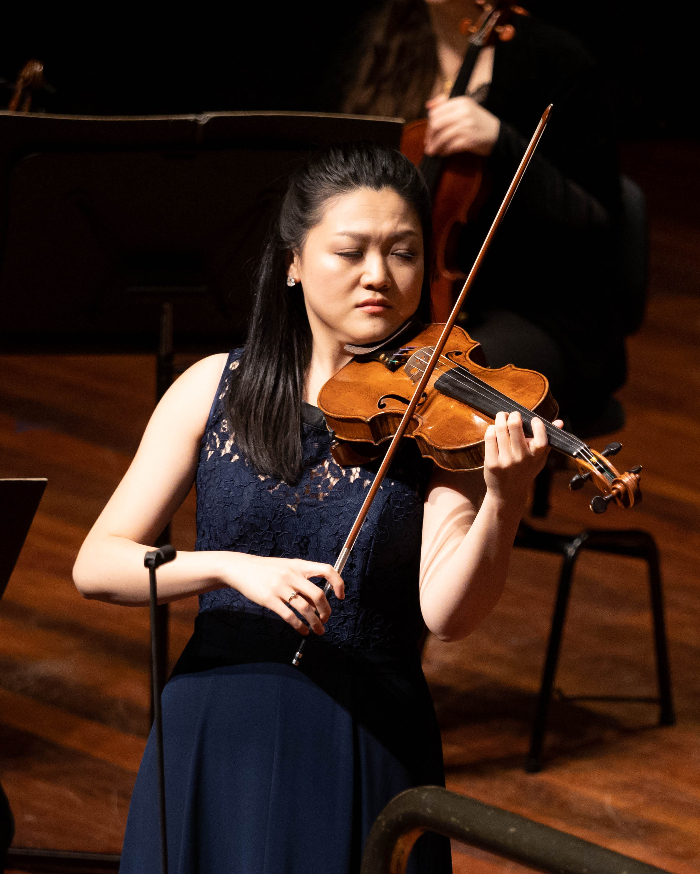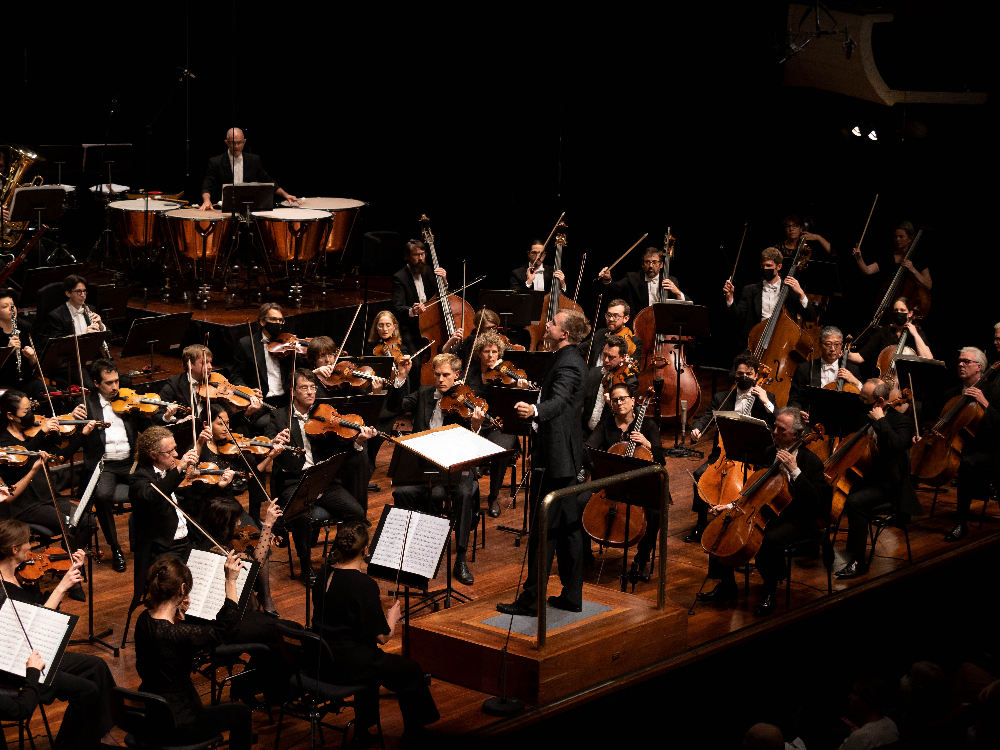Russian-born conductor Vasily Petrenko leads WASO to deliver the drama and violence of Shostakovich’s Symphony No.11, writes Sandra Bowdler.
Drums of revolution echo through years
31 July 2022
- Reading time • 6 minutesMusic
More like this
- Rewriting tradition with skill and charm
- Close encounter stirs the soul
- The great unknown
“Vasily Petrenko conducts Shostakovich”, WA Symphony Orchestra
Perth Concert Hall, 19 July 2022
Two very different guests bring to startling life a concert of great contrasts for the WA Symphony Orchestra’s latest offering, culminating in a mid-20th century work which looks back 50 years from its composition but resonates powerfully in the present.
Russian-born conductor Vasily Petrenko makes his WASO debut for a performance featuring another acclaimed Russian, Dmitri Shostakovich, and his dramatic Symphony No. 11 In The Year 1905, while the program also features rising Australian star Emily Sun as soloist on Mozart’s bright Violin Concerto No.4.
Described as “Russian-British”, Petrenko studied at the St Petersburg Conservatoire and has been principal conductor of the Royal Liverpool Philharmonic since 2015. In 2021 he was appointed principal conductor with the State Academic Symphony Orchestra of the Russian Federation, a position he suspended until peace has been restored. Petrenko’s recordings span the classical gamut from Mozart and Beethoven to Elgar and Higdon and naturally the Russians, with the complete symphonies of Shostakovich to his credit. His choices for Perth reflect this range.

For the opening piece, Nielsen’s Overture to Maskerade, a large number of musicians take the stage, in a piece scored for (inter alia) four horns, three trumpets and three trombones. This lively piece is played briskly and seems to be over almost as soon as it begins, but is received warmly.
To prepare for the succeeding Mozart, a large portion of the performers leave the stage. K218, the Violin Concerto No 4 in D is a relatively light-hearted work, certainly compared with what is to come, but demanding considerable virtuosity. As soloist, Sun provides this and more, with highly lyrical and expressive playing. Petrenko provides sensitive support, particularly in the creamy charm of the second movement, and in the final rondeau holds together the varying aspects, both playful and more solemn.
After the interval, the stage once again fills for the heavily orchestrated Symphony No 11. Apart from anything else, one should attend Shostakovich’s symphonies just to comprehend what a really large orchestra is capable of.
This particular work is implacably redolent of Russian/Soviet history, and its relevance to our contemporary situation is inescapable. Subtitled The Year 1905, it is said to be the composer’s most programmatic work, and depicts the events of that year which were a forerunner to the 1917 Russian Revolution. It was largely composed in 1954 to mark the 50th anniversary of those events, although the premiere was delayed until 1957.
In 1905, economic and social strains on the populace across Russia resulted in a mass of ordinary people (not just workers) converging on the Winter Palace in St Petersburg to present a petition to Tsar Nicholas II, whereupon the palace troops fired into the crowd killing hundreds of people (up to 1,000 by some estimates). This is the event depicted by Shostakovich, with the first movement “Palace Square” reflecting the steady but ominous filling up of the square by the petitioners before the trumpet signalling the warning and the troops open fire.

In the second movement, “Ninth of January”, the tension builds almost unbearably, with the carnage among the petitioners and the sheer panic of the crowds embodied in the clashing figures of brass and percussion which still somehow manage to sound eminently musical. The “In Memoriam” movement is elegiac, with a lowering of pitch and temperature, with violas, cellos and basses coming to the fore.
The final movement is “Tocsin”, meaning an alarm bell (and also apparently the name of a revolutionary journal). This suggests the role of 1905 as a harbinger of the historical revolution to come, and a warning for future times. As with the previous movements, the music draws on revolutionary songs for its themes. The work proceeds with urgency and concludes with a bell ringing against a martial theme with dominant timpani, leaving us to ponder the place of oppression and revolution in history and in our time.
Petrenko shepherds this massive work through its paces without slackening, and the orchestra responds with disciplined attack and commitment. The attentive audience holds the final silence for a long moment, before erupting into applause.
How fortunate we are to experience a Russian conductor of global repute drawing out such a performance from our Australian performers, while illuminating the relevance of the art of music in a perilous world.
Pictured top: Vasily Petrenko personifies the drama and emotion in Shostakovich’s work. Photo by Linda Dunjey
Get the latest arts news and reviews from Seesaw in your inbox
Like what you're reading? Support Seesaw.






